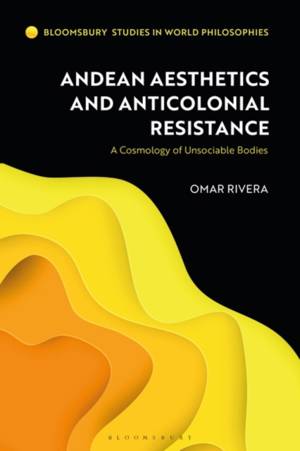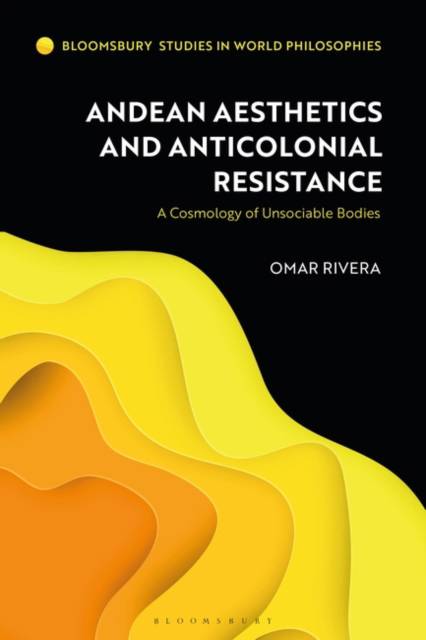
Bedankt voor het vertrouwen het afgelopen jaar! Om jou te bedanken bieden we GRATIS verzending (in België) aan op alles gedurende de hele maand januari.
- Afhalen na 1 uur in een winkel met voorraad
- In januari gratis thuislevering in België
- Ruim aanbod met 7 miljoen producten
Bedankt voor het vertrouwen het afgelopen jaar! Om jou te bedanken bieden we GRATIS verzending (in België) aan op alles gedurende de hele maand januari.
- Afhalen na 1 uur in een winkel met voorraad
- In januari gratis thuislevering in België
- Ruim aanbod met 7 miljoen producten
Zoeken
€ 67,95
+ 135 punten
Omschrijving
Informed by Gloria Anzaldúa's and José Carlos Mariátegui's work, as well as by Andean cosmology, Omar Rivera turns to Inka stonework and architecture as an example of a "Cosmological Aesthetics." He articulates ways of sensing, feeling and remembering that are attuned to an aesthetic of water, earth and light. On this basis, Rivera brings forth a corporeal orientation that can be inhabited by the oppressed, one that withdraws from predominant modern/Western conceptions of the human. By providing an aesthetic analysis of cosmological sensing, Rivera sets the stage for exploring physical dimensions of anti-colonial resistance, and furthers the Latinx and Latin American tradition of anti-colonial and liberatory philosophy. Seeing aesthetic involvements with the cosmos as a source for embodied modes of resistance, Rivera turns to the work of María Lugones and Enrique Dussel in order to make explicit the aesthetic dimensions of their work.
Andean Aesthetics and Anticolonial Resistancecreates a new dialogue between art historians, artists, and philosophers working on Latin American thought, phenomenology, and hermeneutics. It weaves together a Latin American philosophy that connects pre-Columbian cosmologies with contemporary thinkers. Rivera's original approach introduces us to the living, evolving and aesthetic alternatives to coloniality of power and of knowledge, overhauling current understandings of decolonial theory and opening the tradition in transformative ways.
Andean Aesthetics and Anticolonial Resistancecreates a new dialogue between art historians, artists, and philosophers working on Latin American thought, phenomenology, and hermeneutics. It weaves together a Latin American philosophy that connects pre-Columbian cosmologies with contemporary thinkers. Rivera's original approach introduces us to the living, evolving and aesthetic alternatives to coloniality of power and of knowledge, overhauling current understandings of decolonial theory and opening the tradition in transformative ways.
Specificaties
Betrokkenen
- Auteur(s):
- Uitgeverij:
Inhoud
- Aantal bladzijden:
- 248
- Taal:
- Engels
- Reeks:
Eigenschappen
- Productcode (EAN):
- 9781350273221
- Verschijningsdatum:
- 29/06/2023
- Uitvoering:
- Paperback
- Formaat:
- Trade paperback (VS)
- Afmetingen:
- 156 mm x 234 mm
- Gewicht:
- 344 g

Alleen bij Standaard Boekhandel
+ 135 punten op je klantenkaart van Standaard Boekhandel
Beoordelingen
We publiceren alleen reviews die voldoen aan de voorwaarden voor reviews. Bekijk onze voorwaarden voor reviews.









